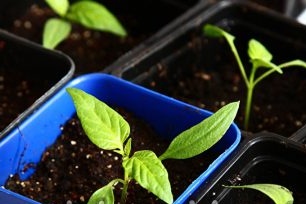 Not all beginner gardeners know how to prepare soil for seedlings at home. We decided to specially prepare a master class, thanks to which it will be possible to independently mix the necessary components to obtain a nutritious soil mixture.
Not all beginner gardeners know how to prepare soil for seedlings at home. We decided to specially prepare a master class, thanks to which it will be possible to independently mix the necessary components to obtain a nutritious soil mixture.
Peat, especially peat (obtained from the upper layers of swampy soil) has a high acidity, and only a few plant species can develop in acidic soil. The main vegetable crops grown by summer residents in personal plots require alkaline soil. In addition, peat has in its composition an extremely small amount of mineral substances.
To achieve a good harvest, it is worthwhile already at the seedling growing stage to make sure that the plants grow in alkaline nutrient soil rich in minerals necessary for their development.
The composition of the soil for growing seedlings
- universal soil for seedlings - 3 parts,
- coconut substrate - 1 part,
- vermiculite - 1/3 part,
- vermicompost - 1 part,
- dolomite flour - 100 g (if necessary),
- biological fungicide zircon - 1 ampoule.
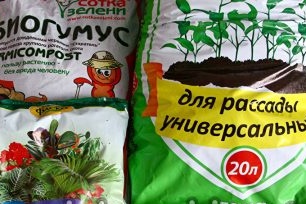
Operating procedure
In order to correctly determine the ratio of all components for composing nutrient soil, any capacity, for example, a large bowl, can be taken as a unit volume. That is, this bowl, filled to the brim, is one part. If you need to take three parts, you will need to add three such bowls, if you need to measure 1/3 part, then simply fill this bowl by a third.
First of all, you need to soak the coconut substrate. To do this, pour 2.5 liters of warm water without chlorine into the tank (for the chlorine to evaporate from the tap water, you need to hold the water in an open container without a lid for about an hour) and lower the pressed briquette of the coconut substrate into it.

After 15 minutes the coconut substrate is saturated with water and will turn into a thick, mushy substance.
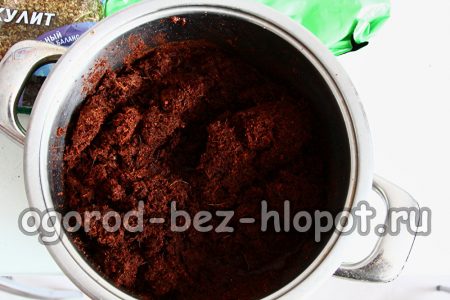
You can begin to prepare nutritious soil for seedlings. As mentioned earlier, one cup is one part of the volume.
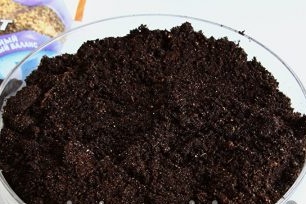
Take three parts of universal soil as a basis (pour three bowls of soil into a large basin).
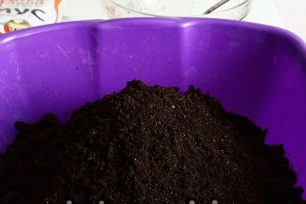
Measure 1/3 part (third of a cup) of vermiculite.
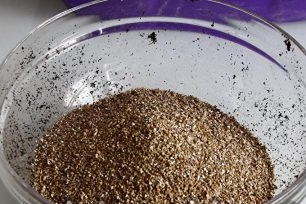
Add vermiculite to the universal primer. Vermiculite serves to ensure that the soil does not coalesce, is loose, and air enters the root system of plants.
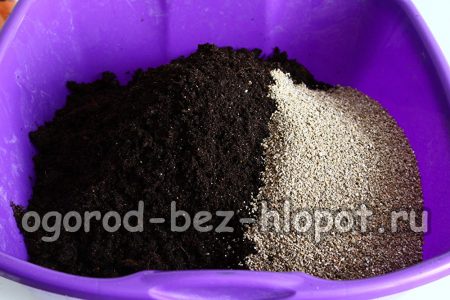
Measure out the required amount of vermicompost, dial a full cup (this is 1 part).
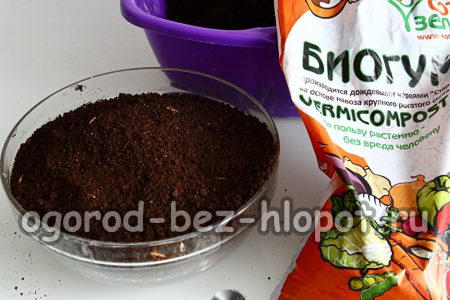
Add vermicompost to the soil mixture. Biohumus is perhaps the most important component of our nutrient mixture. Biohumus is a product of soil processing by earthworms, therefore it is a biologically active substance. Biohumus contains enzymes, vitamins, minerals, humic substances, nutrients and soil microorganisms.
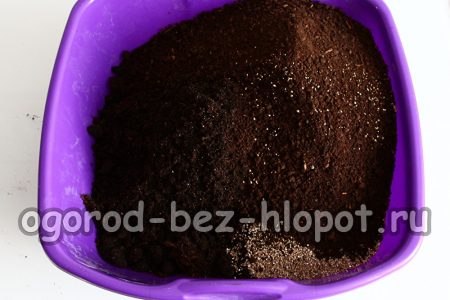
Mix well all the dry components of the soil mixture.
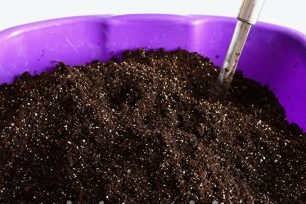
Collect a full cup (1 part) of swollen, moist coconut substrate.
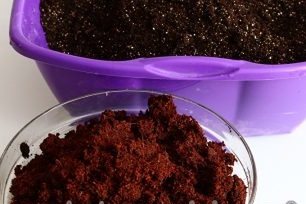
Add it to the soil mixture and mix well again. It is a coconut substrate that provides a decrease in the acidity of peat soil. The acidity of the coconut substrate is 6.0, that is, almost neutral. To make the soil alkaline, it is recommended to add ash or dolomite flour. If the universal soil that you purchased in the store does not contain any ash or dolomite flour, add about 100 g of any of these substances to the soil.Dolomite flour was already in my soil, so I did not add it.
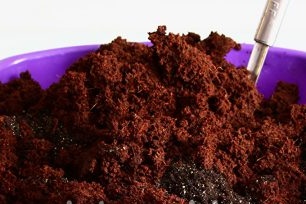
You have already prepared the nutrient soil for growing seedlings at home, but this is not enough. It is necessary to disinfect it so that the plants are not affected by various diseases, especially the well-known "black leg", from which seedlings most often die.
Dilute any biological fungicide according to the instructions on the packaging. Do not worry, it will not harm either the plants or you. In addition, fungicides contribute to increased root formation. I used zircon.
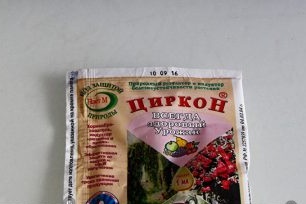
Dilute one drop of zircon in 1 liter of water.
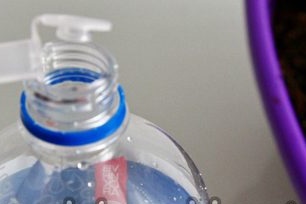
Sprinkle all prepared nutrient soil with a zircon solution from the sprayer, turning layer by layer.
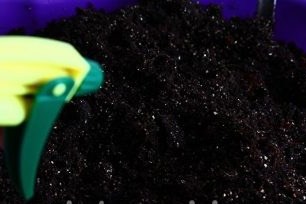
Ideally, the soil should stand for about a week, so that the microorganisms thoroughly populate the nutrient soil you prepared. If you are in a hurry, then hold the soil at least during the day and only then transplant into it seedlings.
Have a good harvest!
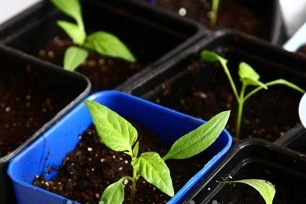
Master class from Milena

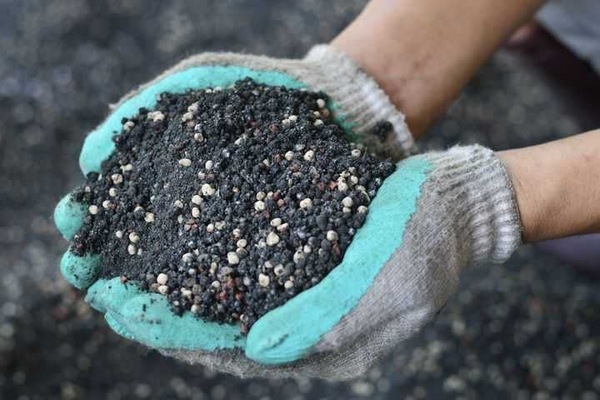
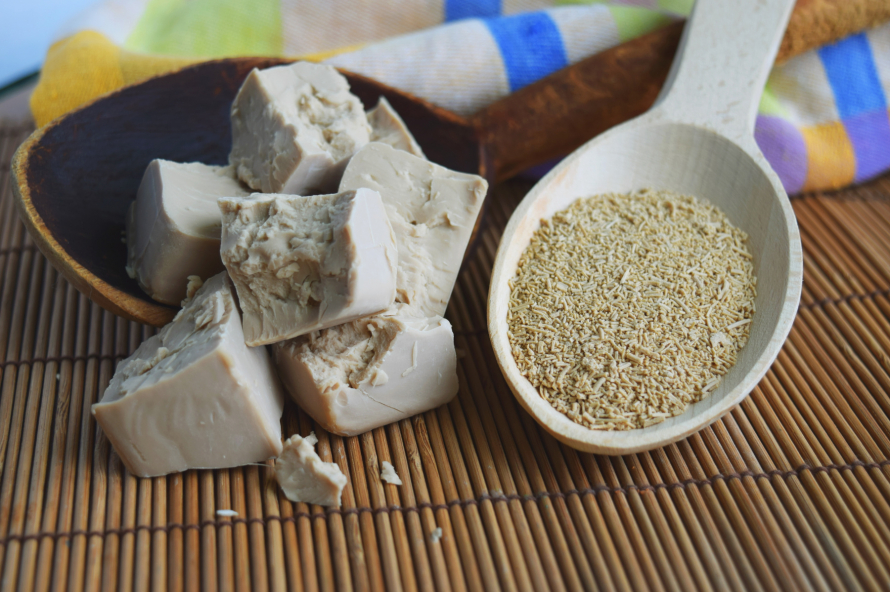
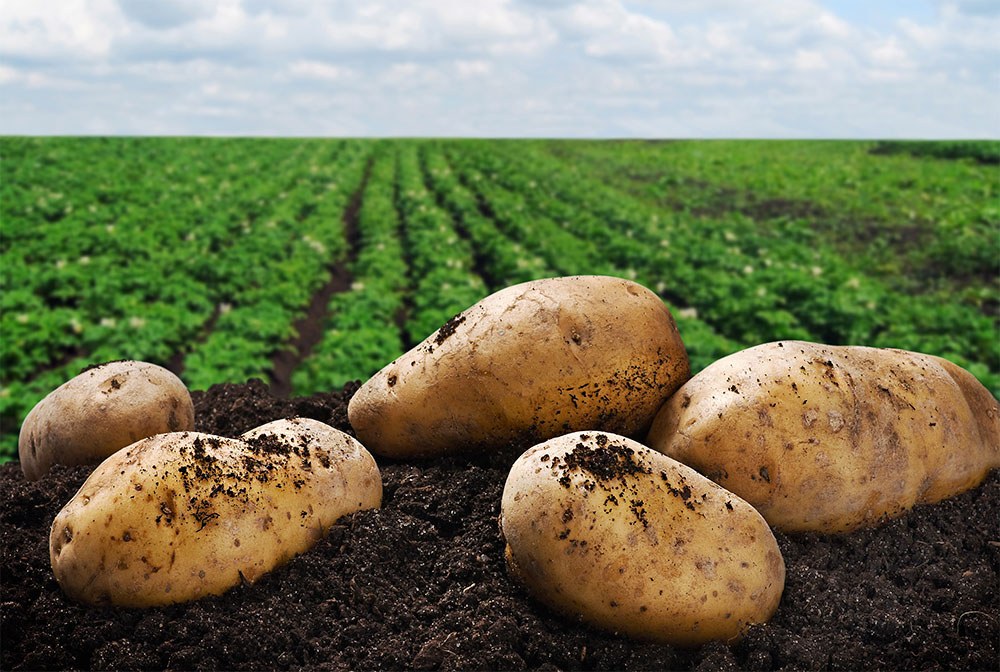
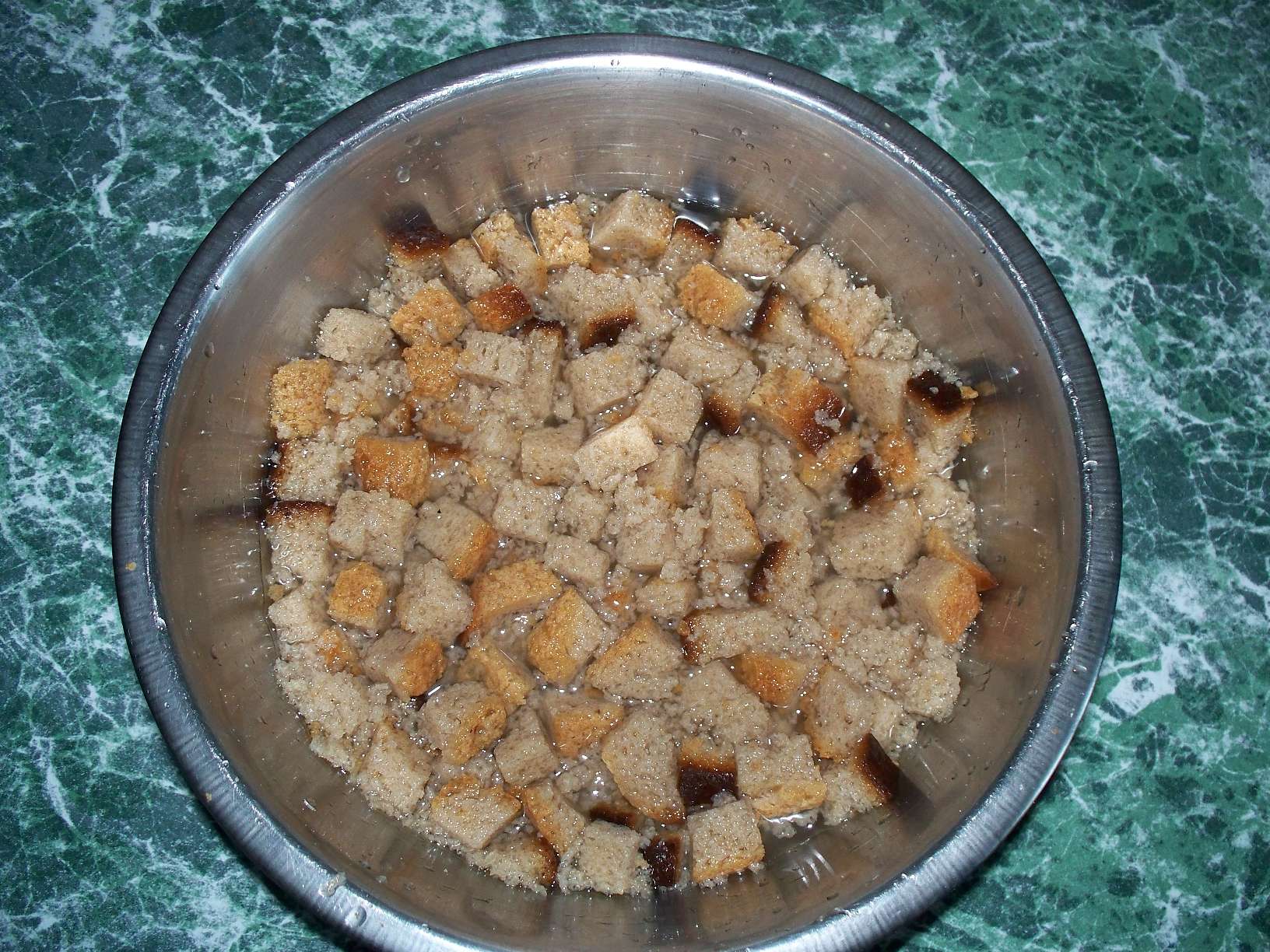 How to make bread infusion for feeding cucumbers
How to make bread infusion for feeding cucumbers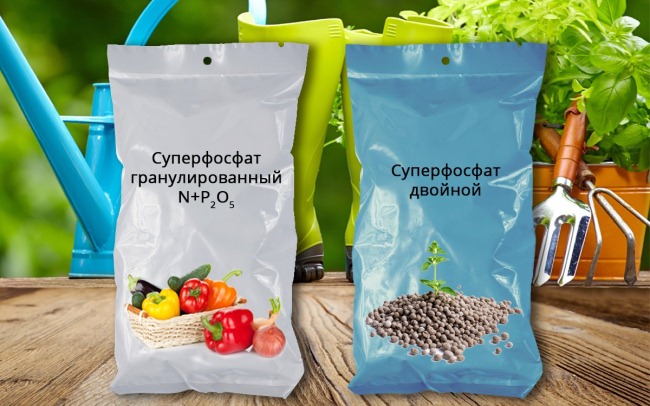 Superphosphate: what is it and how to apply it
Superphosphate: what is it and how to apply it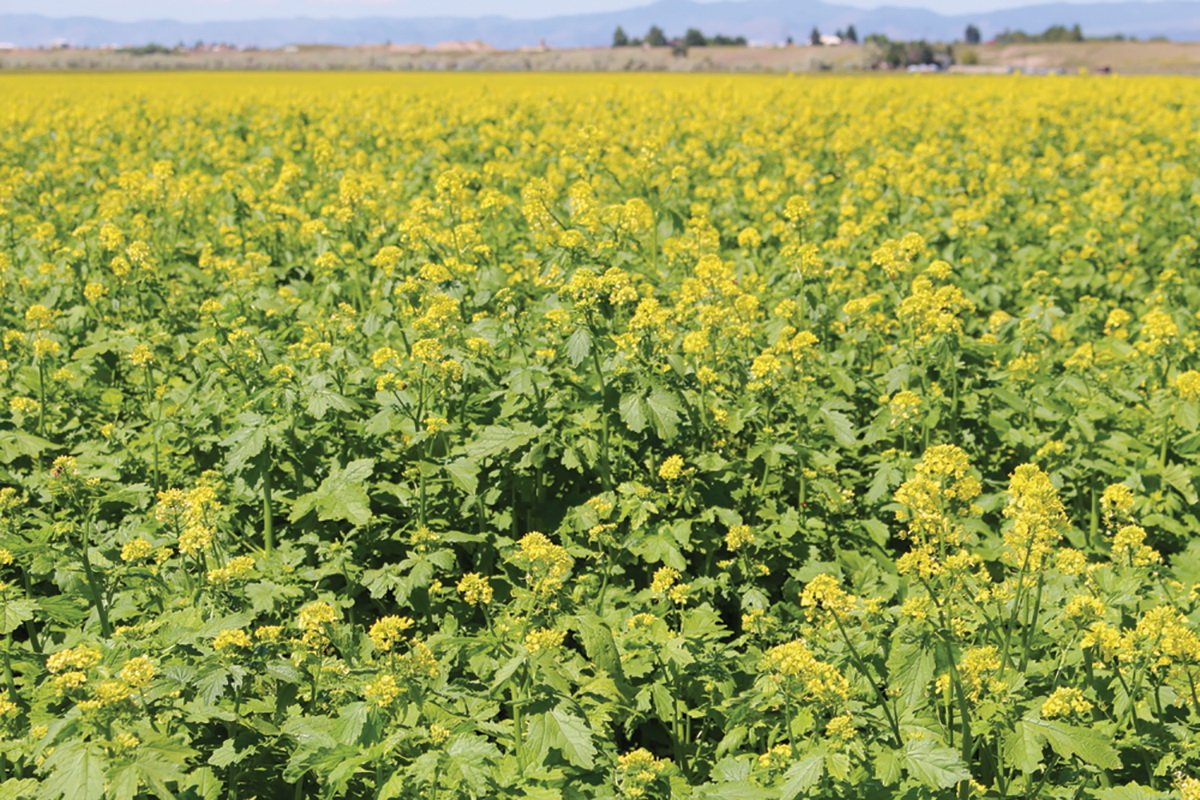 What problems can be expected from siderats?
What problems can be expected from siderats?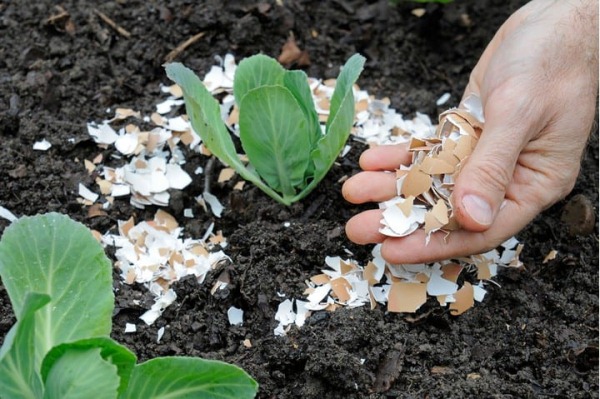 Secrets of the collection, storage and use of eggshells in the garden
Secrets of the collection, storage and use of eggshells in the garden